Starting Off Right: Mentorship Begins With Empathy
Everyone arrived early, packing into two small rooms on the second floor of Pokhariya Hospital in Birgunj, Nepal. The adolescents appeared somewhat nervous; the health care workers were unsure what to expect. This was the first day of the facility’s adolescent reproductive health mentorship visit. Facilitated by the Adolescent Reproductive Health (ARH) project of the U.S. Agency for International Development (USAID), the goal of this activity was to bring adolescents and health workers together to listen, interact, and learn from each other. The ARH project, led by CARE Nepal in partnership with global health nonprofit Jhpiego, is using the Breakthrough ACTION-developed Empathways tool, among other things, to empower adolescent girls and boys 10–19 years of age, including the most marginalized, “to reach their full capacity by choosing and practicing healthy reproductive behaviors.”
When designing the mentorship package, project staff knew they needed to center their work on the experiences and vision of care of real adolescents from the community. Empathways, developed by USAID-funded Breakthrough ACTION, was the most apt tool for this exercise. Designed to build empathy and support provider behavior change, those working on the activity used Empathways to facilitate a series of conversations between health care providers and adolescents. During a Master Mentor preparation workshop facilitated by Jhpiego, participants adapted the content to the Nepal context, incorporating feedback from all stakeholders, which included healthcare providers, government officials and youth participants. Jhpiego built in mentorship sessions to help providers explore their own beliefs that may impact the care they provide to adolescents, in addition to the mentorship sessions to strengthen skills around adolescent-responsive care, support data reviews, and implement quality improvement processes.
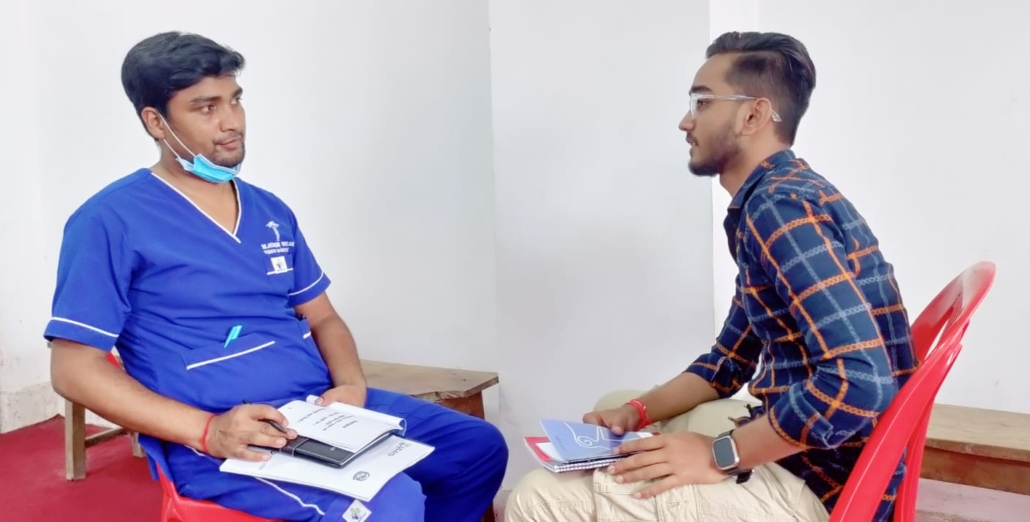
Adolescent and recently recruited physician during Empathways activity. Credit: Jhpiego for USAID ARH
With minimal instruction from the lead mentors, the group quickly hit its groove. The participants were instructed to pair up, an adolescent and a health worker in each pair, and work through a series of questions. The room was abuzz as the participants moved from lighter introductory questions, from “Tell me something about your childhood. What kinds of things do you enjoy doing?” to more probing ones like, “What was the worst health care experience you’ve ever had? How did it make you feel?”
Slowly, they began to explore scenarios around adolescents accessing reproductive health care. Short case studies made them reflect on questions such as “How might Asha and her boyfriend feel before, during, and after the visit? What went wrong here? What could the provider have done differently?”
Jhpiego’s earlier work with Empathways showed the activity had the ability to open up discussions around topics that neither adults nor adolescents were used to having. In Nepal, the participants found this different from previous skill-building exercises.
“This exercise has helped me learn new skills to deal with adolescents. It is [more] extensive than I learned in medical school. I got new perspectives from adolescents regarding their needs and areas where they seek support. This will help me throughout my career.”
— Recently recruited physician
This mentorship package continues to be rolled out within facilities, eventually across 60 municipalities in Madhesh, Lumbini, and Karnali provinces. Empathways will feature in the first in-person mentorship visit with every mentee, along with other components like strengthening counseling skills, understanding adolescent-responsive health systems, and boosting monitoring and evaluation methods. Participants have bigger plans, though. As one master mentor said, “I am thinking of adopting Empathways for counseling sessions in other trainings as well, like in skilled birth attendance [or] family planning training.”
Adolescents, too, appreciated this new interaction technique.
“I am 19 years old. I got married and am the mother of a baby girl. Yet, I am not using any family planning method. One of the examples we practice is just like my own situation. This has opened my eyes. Now, I will protect myself.”
— Adolescent participant
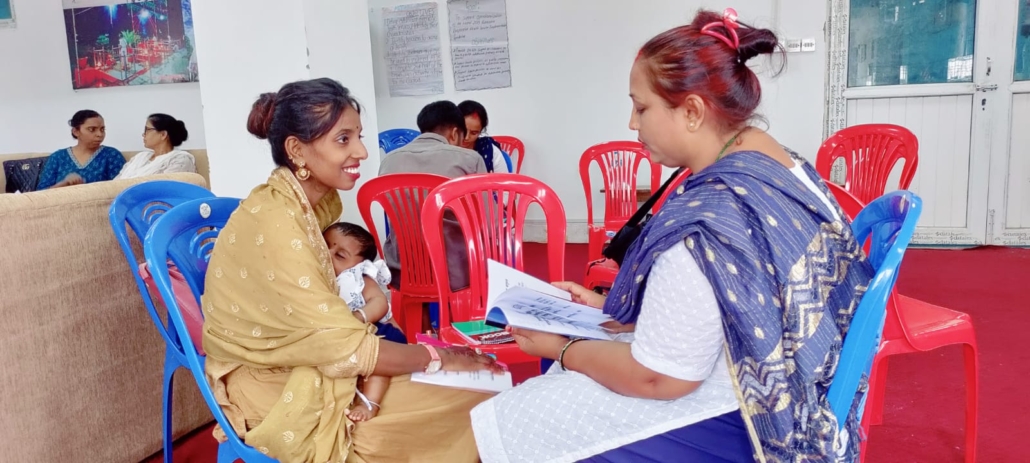
Adolescent mother and health care provider during Empathways activity. Credit: Breakthrough ACTION
With Breakthrough ACTION’s Empathways emphasizing adolescent perspectives in the foundation of the adolescent health mentorship package, Nepal’s youth and their providers accelerate progress towards quality, adolescent-centered reproductive health care.

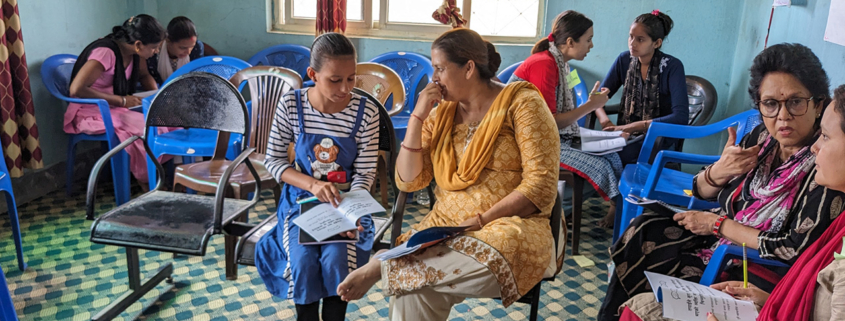 Jhpiego for USAID ARH
Jhpiego for USAID ARH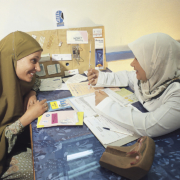 Center for Communication Programs/Photoshare
Center for Communication Programs/Photoshare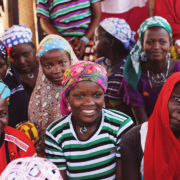 Cambey Mikush/Photoshare
Cambey Mikush/Photoshare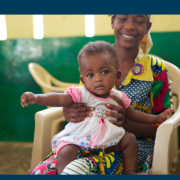 Sara Holbak/VectorWorks/Photoshare
Sara Holbak/VectorWorks/Photoshare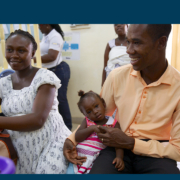 Sarah Hoibak/VectorWorks/Photoshare
Sarah Hoibak/VectorWorks/Photoshare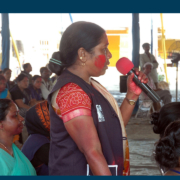 Gopal Bhattacharjee/Photoshare
Gopal Bhattacharjee/Photoshare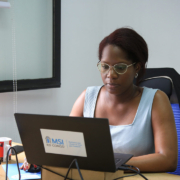 Getty Images/Image of Empowerment
Getty Images/Image of Empowerment